
100 Man Kai Ieba Yokatta
9 persone hanno trovato utile questa recensione
Even the superhuman efforts of Satoh Takeru couldn’t save this one.
After a rough week I was just wanting something relatively brainless to drop into and when Netflix offered me this I conceded that Satoh Takeru is more than just a good actor, he’s a very pretty face and was seduced into trying it.It was 6 episodes in that I found out, to my disappointment, it was a 10 episode drama rather than an 8. You may wonder at this point if I am simply incapable of dropping a show. Well, Black Knight went down the tubes 10 minutes in… But this was one of those compulsively bad dramas you just have watch to the end. Boiled frog syndrome. There’s a totally perverse pleasure, or perhaps it’s a morbid fascination, in seeing just how valiantly good actors will struggle to put on a show as the writing progresses from almost passable, to unfortunate, to cringeworthy, to bad, to embarrassing, to execrable, to finally arrive at the only remaining destination—hysteria. Wah, the professional pride of this cast was impressive!
There’s something about Satoh Takeru that makes virtually anything he takes seriously totally believable, but even this superhuman quality of his was unable to save the farce of episode 9 (Thunderbolts and lightening, very, very frightening me…) and the sentimental quagmire of episode 10. And btw who the hell thought of adding that jaunty song into the mix? Wtf were they thinking…
The idea was marginally interesting and could have been made to almost work in the hands of a writer who could have taken the theme of death and relinquishment and given it some pathos. But I’m afraid Adachi Naoko either doesn’t know what those experiences are made of, or is just unable to write an insightful account of it. I suspect the former (forgive me if it’s the latter but it really has no impact on the end result). At first I thought it was going to be a whimsical approach but then it gradually became clear that keeping everything “nice” and above the murky waters of real feeling was the driving factor.
The character of the policeman was bordering on nauseatingly sickly and he was forced into that profession by the writer’s necessity for someone to solve a crime. In fact I swear he’d been training for the priesthood before she hijacked him for the part. And that’s the core of the problem really, the conveniences and problem-solving adjustments just got more and more ridiculous as the drama progressed. Everything was halfhearted and superficial, from the romance to the crime, which sort of lurked in dark corners. Well, I suppose I got what I wished for - something brainless.
What my rating means: 4+ I forced myself to go through to the end of it, but only because I was committed to writing the review. It annoyed the hell out of me. Actively avoid.
Questa recensione ti è stata utile?
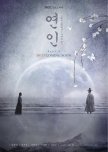
A never ending struggle to the end and not just for them…
I'll apologise in advance, this isn't going to be my best review I simply can't find the enthusiasm to go into any depth.I never thought it was going to finish. And by the time we did end up at the beach, I was less than interested and definitely not convinced. I felt like I’d been dragged kicking and screaming through a series of fragmented plot-lines, rushed developments and overused clichés. Amnesia once is unfortunate, twice is unforgivable and tbh I got to the point of hoping to be touched with it myself…
The actors battled hard against an ever loosening plot, but were unable to save it falling apart into a weird time-loop at the end. The costumes were very pretty and far too clean, and the cinematography was also pretty.
An attempt to be epic that simply became unmanageable.
Questa recensione ti è stata utile?

Wol Soo Geum Hwa Mok To
10 persone hanno trovato utile questa recensione
It’ll pass the time…
Look, it’s not that this drama is bad it’s just really not that good. If you’re in a lacklustre mood and want to curl up on the sofa in your jarmies and stuff your face with chocolate whilst lamenting the state of your work life, then this show might be a sucky blanket to help you through the week.To describe this as a comedy is not really accurate. Yes there are a few smile moments, but this is a romantic drama with a classic romcom set-up that takes itself seriously. And that is both its strength and unfortunately its weakness.
The script isn’t quite up to delivering the impact which the story demands. It’s sitting on an edge of seriousness but trying to keep itself light. It’s not sure whether it’s a drama or a romance and consequently the more serious themes sit uncomfortably with the sometimes superficial and cliché dialogue. It really wants to explore the characters but doesn’t have sufficient skill or gravity to give them the required depth and it turns into a long drawn out inching forward.
Although the Single Life Helper starting point was original and interesting, the plot gets caught up in trying to make the standard chaebol arranged marriage theme fit with it and it doesn’t quite work. You could see the plot twists in episode 13 from 15 episodes previously and there is also insufficient plot to give the story dynamic impetus.
The antagonists are stereotypical and not carefully enough drawn, with a single mode of operation that conveniently causes trouble. Neither are they important enough to have any real impact. For most of the drama they hang around like flies, creating an annoying buzz and then get unconvincingly swatted at the end.
There are three ok leads, but they could have been better given more in the script. The best performance came from Kim Jae Young as Kang Hae Jin, who had the most opportunity to create a rounded character. Park Min Young dusted off her acting skills again and displayed a little of her talent but nothing outstanding and she was beaten in the showing-credible-emotions stakes by Jin Kyung as Ji Mi Ho. I’ve seen better performances from Go Kyung Pyo who tried to do something with his character, but acting the classic buttoned-up ML is always a challenge. (My vote for the best rendition of this character type goes to So Ji Sub in “The Master’s Sun”.) Kang Hyun Suk was the best of the supporting cast with a lovable performance as Woo Gwang Nam.
What my rating means: 7+ A watchable drama, but nothing exceptional. Good enough to qualify for the race, but finished with the pack. The sort of thing that promises more than it delivers.
Questa recensione ti è stata utile?

Return of the Jedi—may the Force be with you…
There’s a payoff between pace and depth, and here pace predominates. It skips along like a Y-wing starfighter over a planet, just kissing the surface before flying to the next bombing target. Skimming through multiple scenarios with the barest of detail; something that could occupy half a drama is dispatched in half an episode. It’s a fill-in-the-gaps-yourself style that reflects its origins in manga.There are also two ways of creating complexity: character depth or plot lines. After a fairly slow establishment, Episode 4 explodes sub-plots like a baradium thermal detonator, with an ever increasing cast of characters and no sign of any depth. From this point on the ML bounces between plot lines and the numerous character relationships float, sink or swim in the two seconds it takes for Lee Joon Gi’s lop-sided smile to fade. You need to keep up, as characters zip in and out like X-wing starfighters.
The drama is a no-holds barred attack on every form of corruption imaginable and some that you never even dreamed of in your nightmares. It features the master manipulator, Assemblyman Cho Tae Seob (come over to the dark side Kim, you know you want to) and his nemesis, Prosecutor Kim Hee Woo (may the force be with me, no I’m not a monster). However, for most of the drama, it’s all too easy for the Rebel Alliance to knock down the Galactic Empire with convenient information that just seems to materialise out of thin air, almost on the scale of “and here’s one we prepared earlier…” It’s all just far too convenient.
To really develop a proper struggle between the two sides you need time, and there is no spare second here, all of it is taken up churning through the multiple scenarios that seem a large price to pay to move things forward. Not that there is anything intrinsically wrong with this, it’s a choice that’s been made. The question is, having made the choice, do the writers and director deliver on it?
No they don’t. At the start there is a lot of wince-making stuff (more about that later) but as it progresses this mellows a bit (or I surrendered and ceased to notice it so much) and the script and direction create a drama that, for the first half, kept me interested and racing headlong into the next twist. But pacing and complexity are a tricky thing and for this drama, like many others, trouble really kicks in around two thirds of the way through, when the pace drops to establish the run-up to the finale. There is simply too much going on to be able to fully exploit every angle. Having manufactured twists in abundance, they are then left hanging for ages before being conveniently picked up again to serve some random purpose. Obstacles thrown in the way are about as troublesome as C-3PO on a good day and in the end there is very little bite. So much time is spent explaining the tangled threads and maneuvering heavy furniture into place (and believe it or not, introducing yet more characters and plot threads) that the tension gently leaks away and I was left sitting well back in my seat, drumming my fingers on the arm.
What do I mean by wince-making stuff? Well the melo at the start was badly handled, cliché, and painful to watch in all the wrong ways. Just because Lee Joon Gi can cry easily, and look pretty doing it, doesn’t mean he should be asked to do it at every available opportunity. LJG going back to being a teenager simply doesn’t work for me. He’s thinking like an adult, acting like an adult, looking like an adult. Just weird. Then there’s the continuous stating-the-obvious spoken thoughts (mainly by the ML but not exclusively) that are condescending and irritating in the extreme. Unfortunately this insult to intelligence continues to happen throughout the show. Lastly, a basic rule of writing: if you “show” do not also “tell”, which happens far too frequently and particularly involving the patronising asides just mentioned.
There might however be some excuse for the amateurish aspects of the writing as we appear to have two rookie writers overseen by the more experienced Lee Byung Hun (I have not seen any of the dramas he has penned).
Another cost to the cast of thousands/multiple scenarios choice is that time for the character development of the leads is minimal (if there is any at all) and we are left with meh, generic characters, indistinguishable from many that have come before them, and the thousands that will follow after them. And in the cast of thousands there were a number of supporting roles that did not contribute much to the plot and with a bit of imagination could have been omitted. In a fast paced, streamlined thriller, superfluity is a luxury.
Lee Joon Gi has said he wants to continue to do action dramas whilst physically he still can, and let’s face it he’s pretty bloody good at it. In the first half there are fights in every episode and they look pretty good to me but hey, I’m really not qualified to judge. It must have been why he chose this drama, because it sure wasn’t for the challenge of the main character who had little to distinguish him from the average. But, as “Flower of Evil” proved, LJG is an accomplished actor who can pull out a great performance when assisted to do so. Isn’t there someone out there who can write an intelligent action drama for him to star in, where his character possesses more than the emotional range of a teaspoon.
Lee Kyun Young did yet another repeat of Lee Kyun Young under another pseudonym. (Yawn) I don’t know why they don’t just film him with a generic name and part so that whenever a scriptwriter needs a corrupt politician/businessman they can just save time by slotting it in, because whatever they write, it will come out as the LKY stock character. Kim Chul Ki was slightly more subtle as Jeon Seok Gyu and could no doubt have given a vastly better performance as Cho Tae Seob than LKY.
There’s a peculiar touch of irony in my mind about the use of Gustav Holst’s music for “I vow to thee my country”. Holst arranged the theme from the “Planets Suite: Jupiter, The Bringer of Jollity” to suit the lyrics of a poem by Cecil Spring-Rice and created a hymn often sung on remembrance days. Although Jupiter is the primary god the Romans and takes care of society and its laws, I don’t think that the reference is intended for Jolly Jupiter, but rather the hymn about sacrificing everything, including one’s life, for your country. “I vow to thee my country” was written before the first world war and revised in the aftermath of it. Spring-Rice was a moustachioed paragon of a British Empire that espoused an attitude of paternal tyranny that pretty much aligns with the villain in the drama, Cho Tae Seob. Yet the music is the theme tune for the Rebel Alliance and usually pops up when Kim Hee Woo (Lee Joon Gi) is doing something magnanimous and honourable. (Lyrics and video here: http://www.songlyrics.com/choir-of-westminster-abbey/i-vow-to-thee-my-country-lyrics/)
As for the other music, even the Carmina Burana-esque flourish that occupied a slot in Ep 1 (at 8’ 35”) was forgiven when I heard the smokey tones of U Sung Eun on “Till the End” which was the only thing about the whole show that totally blew me away. Oh, except for the gorgeous valve amplifier (Ep 7) Jo Tae Seob uses to play the first movement of Beethoven’s Moonlight Sonata. My heart skipped a beat. I have a 1983 Pioneer SX-450 that I refuse to part with, it’s so damn sweet.
What my rating means: 5+ Meh! Don't bother, it's full of platitudes and clichés with boring characters and plots.
Questa recensione ti è stata utile?
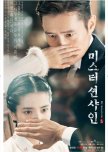
Outstanding show with a plot like a rudderless boat
This is the sort of show that you have to watch and be forgiving of its weaknesses because the performances, the direction, the development of the relationships, the cinematography, the sets and the costumes are so outstandingly good.It’s main weaknesses comprise two things: the plot, which is like a rudderless, leaking boat meandering on the current, constantly threatening to capsize whilst being patched together with coincidence and miracles; and the English speaking script and actors, which are, as usual, pretty abysmal.
Questa recensione ti è stata utile?

Oversweet nostalgia, very tastefully executed
More in the style of a fly on the wall documentary, this sensitively scripted and filmed piece follows two nascent young women into the world of the Maiko. It has an art-house style that favours snippets of ordinary conversation to create the ambiance and atmosphere of their life rather than “telling” any type of story.It’s a piece to immerse yourself in and it creates a glimpse into a secluded world where time has attempted to stand still. A world of women which is gentle, ordered, bounded, protected and essentially safe. But it has a cost and one of the characters says, “I can’t imagine how us girls could ever live outside of this city”. The restrictions imposed are like the inhibiting clothing and hairstyles, superficially attractive but stultifying, requiring a real-life sacrifice from the participants which is featured in the story. Overall though, the drama puts a glaze over their experience, effectively creating something sugary and homely, much in keeping with the nostalgia that inhabits their profession.
There are minor frictions but don’t look for antagonists creating problems to solve. The characters are universally pleasant and even the more troubled teenager is hardly abrasive. So there is no real depth here and it suffers in my opinion from being overly sweet.
The drama does not seek to contextualise the profession in terms of modern society and virtually all of the paying clients are shown as Japanese middle-aged men, representing a staid conservatism that reflects the stated desire to preserve the past as cultural heritage. There is none of the modern catering for tourists here, even though the photo opportunities when the Maiko are out on the streets is highlighted. Neither is there any discussion or concern shown for the future of such an expensive pastime that services a very small, select clientele.
Food is used as metaphor within the show and each episode features a separate dish. It was a deliberate design feature as one of the main characters becomes the cook and the series is named for that role. As I am fairly ignorant of Japanese cuisine and culture in general, there were abundant occasions where I felt that I was missing the references which were not explained. This would point to the drama being written for a domestic market rather than international consumption.
The cinematography uses as close to natural light as possible often creating the feeling of cloudy days and dim interiors and keeps the modern world of bright lights and kitchen conveniences at bay. The colour palette is very muted and this lifts the contrasting brightness of the maiko’s clothing, emphasising their uniqueness and separateness from the world around them.
Although I did not personally fall in love with this drama, the quality is undeniable, hence the rating.
What my rating means: 8+ A great drama with interesting content and good writing, direction, acting, OST, cinematography. But didn’t quite have the requisite sparkle to bump it into my all-time fave list. Worth watching.
Questa recensione ti è stata utile?

L'amore lontano dalla città
4 persone hanno trovato utile questa recensione
Sucky blanket romance
A sucky blanket of a romance, with all the normal tropes of love triangles and quadrangles and anything up to dodeca-angles; absent family; hair-pulling fights; past encounters; ML going from distant cool to close warm; men facing off like boys; and of course all the standard clichés of country life. The plot is a well-worn trail of the obvious, so you don’t even have the stress of wondering what’s going to happen, even though they have to cram it in the last episode.One of the benefits of country shows is at least there’s less PP! Unfortunately though it does step in and manage to kill the mood… ah I really should get over it, but it’s done sooo clumsily here.
Look there’s nothing original, everything is bland, innocuous and inoffensive (and that includes the chemistry, or lack of it) but the short half-hour format makes it an ideal watch for those times when you’ve come home exhausted and all you want to do is curl up in front of the fire and veg out with something totally predictable, brainless, sweet and cosy.
What my rating means: 7+ A watchable drama, but nothing exceptional. Good enough to qualify for the race, but finished with the pack. The sort of thing that promises more than it delivers.
Questa recensione ti è stata utile?
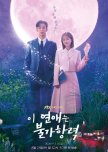
Per amore e per destino
6 persone hanno trovato utile questa recensione
A drama with potential, let down by lack of finesse.
The writer, Noh Ji Sul, penned the full-on, tear-stained melo, Scent of a Woman and also 100 Days My Prince (which I haven’t seen). Here we have out and out romcom for the first half and melo-drama for the last part. It’s worth noting that the genre tags are romance and drama, not romcom. It seems she likes extremes and she mixes them here in line with the current trend of fudging genres.Being used to fixed genres it can sit uncomfortably when they are blended. A great deal of viewer enjoyment comes from having expectations fulfilled. When they are not the viewer is pulled out of the world of the story to deal with their own reactions. You can see it reflected in the comments section for this show. However, in the constant search for something new and different I can see this trend continuing and no doubt we will all adjust our expectations accordingly.
This story is set in two different time periods but the movement between them is somewhat random. Sometimes there are links via dreams, other times were are just catapulted back, which felt disjointed. Some visual/cinematic clues would have gone a long way to smooth the jumps and wouldn’t have been hard to implement. Just part of the overall lack of finesse I mentioned in the subject line.
Even in the present, the timeline was repeatedly twisted up. Once or twice will have the desired effect of increasing tension, but when used too much, you know you are being manipulated and it becomes annoying.
The plot in the past could have occupied a whole drama in itself but was rushed through. I felt the balance in the overall story was off, particularly as I spent the first five episodes twiddling my thumbs in the present time waiting for something to happen. If the writer, and later, the director/editor had decided on a more even weight and distribution throughout between past and present it would have woven a better and more compelling story.
I was puzzled in the first two thirds of the show why they should like each other at all. There were very few interactions that could build attraction and yet all of a sudden there was undying love. Later on the chemistry really worked and drew me in, becoming much more believable. But the viewer needed more ground to stand on early in the piece to give it credibility and a more clever weaving in of the backstory would have solved the problem.
The opening episodes are really at a romcom level, and the action is highly exaggerated to suit that type of presentation. But it does tend to undermine the credibility of the emotions to the point that I felt character integrity was being sacrificed for the sake of a joke. Whereas at the end credibility was sacrificed for a somewhat ridiculous stalker plot.
Rowoon has been very busy in some top-rated dramas in the last few years and he’s not stopping. Is he more than a pretty face? Well he does a decent job here, although his perfect good looks need to be ruffled a little more to really convince. I liked Jo Bo Ah’s performance better, and she is also an actor on the rise with some noteworthy performances on her CV.
In supporting roles, Park Kyung Hye gave a brilliant comedic performance as the desperate Son Sae Byeol, deliciously contorting her face like a slapped arse for most of the time. And Hyun Bong Sik oozed as the slightly sleazy manager Gong Seo Gu.
The cinematography in the historical section is beautifully done, with great use of colour and contrast. There’s some traditional fireworks and those scenes were very beautiful. I’d really love to see those myself - one for the bucket list…
What’s the line between accepted notation and cliché? Is it a matter of viewer perception? For me the accepted notations, such as flickering lights meaning spooky etc, were just too frequent not to fall into tired cliché. There was a distinct lack of imagination and freshness in dealing with the supernatural aspects which really should be laid at the door of the director. As far as the script goes, there’s not a lot of subtlety. It gets the job done rather than looking for novelty. You won’t have to read between any lines here.
Finally, it really isn’t hard to decide what season a drama takes place in. And here it was all over the place. People wearing shorts at Christmas, everything full green and verdant in the depths of winter. Talking about being cold and then hanging out outside. Just unnecessary, sloppy production.
Questa recensione ti è stata utile?

Hard-core, unrelenting melo relieved by some good performances
Don’t be deceived by the trailer, this is wall-to-wall weeping melo with a few flashes of sparkle to light up the path. We start with a big shock early on and then gradually add trauma to the mix for each character as we go. It’s pretty unrelenting.This is the main drawback, it tries to pack too much in and takes on too many themes. A secondary focus is child-parent relationships and nature versus nurture. This theme led to the introduction of a lot of characters and some distracting and unnecessarily complex story-lines, one of which is introduced quite late. They have a different resonance to the main plot and disrupt rather than reinforce the central story. The pace of the drama is slow enough at the start to realise the emotional developments, but as the plot becomes more complex the treatment becomes more superficial. Some plot-lines need more attention to be worthwhile and on occasion the emotional impacts are truncated and left hanging.
The romances are somewhat half-hearted and it is notable that the male characters are all listed as support roles. The focus is split between the women’s friendship and their love lives, which means that neither get the strong treatment that they deserve.
The editing of the last episode doesn’t feel smooth to me and although the ending creates the right emotional mood the story-line is fragmented. It pulls its punches and loses something in the process.
On the positive side, it is prepared to get down and dirty with real feelings and conflicting emotional responses. And there are some good performances, particularly from the three leads, Son Ye Jin, Yeon Mi Do and Kim Ji Hyun. The relationship between the them had a believable chemistry and there is a naturalness to the delivery of the lines.
Overall, this is not a bad production, but it carries far too much weight to be an easy or compelling watch.
What my rating means: 6+ Some aspects of it were OK but it had serious flaws. It will pass the time but you can find something better.
Questa recensione ti è stata utile?

Can I Be Someone Else
5 persone hanno trovato utile questa recensione
Relationships laid bare with honesty, comedy and a splash of melo
This isn’t a romcom, but it does have both relationships /romance and comedy as basic ingredients. It’s something that you need to have some good and bad relationship experience to really accept and appreciate. There are no Cinderella and Prince Charming moments here, it is not love conquers all, let’s get married and live HEA. It’s about messy human beings struggling with self preservation and self awareness.A constant theme is that life is a mixed bag of good and bad, happy and painful, and that you have to accept and negotiate it. Set in the world of divorce lawyers, it examines the fragility of relationships in the wider context of family and also the compromises to be made in the face of difficulties. In general it doesn’t over-sentimentalise but allows the imperfections full display and counts the cost of them.
The first episode is funny, vicious and finally vulnerable, and it sets the scene for what is to come quite well. Divorce and relationship strife is a lose-lose situation and it brings out the worst as people fight to salvage what they can from the wreck. The stories highlight the pressure from all sides that causes the inevitable hardening of attitudes .
The drama is not profound and doesn’t set out to preach. There is also a healthy dose of compassion along the way. It manages to take on some very difficult themes and work with them, not always entirely convincingly, but with enough sincerity to carry you through.
However, there are some great one liners, and it showcases how humour is always the fallback mode for survival. It periodically utilises some of the darker shades of comedy to keep the mood lighter. Sometimes it flirts with the line of acceptability and credibility but on the whole stays on the right side of it and draws back when necessary to keep the integrity intact.
It’s a difficult balance to strike and I think they did quite a good job initially in meshing it all together but the further in you get, the higher the stakes, and the more it fails to gel properly. The full-on melo in the final episode was not to my taste, ‘cause I’m a less is more sort of gal, but the final outcome was right for the characters imo.
The performances were good but not outstanding. There was some great observation and enough character development to make it interesting and real, but at times the comedy elements did disrupt that and some scenes were not adequately prepared for.
This is the only writing credit on MDL for Park Jin Ri. If it’s a first attempt at being a main scriptwriter then I think this is definitely someone to watch out for in the future. She has the ability to create interesting characters and the insight to give them depth.
Overall I liked this drama, but then I’ve got a whole bunch of life-experience to empathise, smile knowingly and appreciate the ironies. It isn’t brilliant but I think it’s better than average so I was in two minds about the rating. However, in the end I chose the lesser as I couldn't really justify the higher. If you’re into wish fulfilment you won’t find much of that here and I recommend you to flick channels and go for “Crash Course in Romance” instead.
What my rating means: 7+ A watchable drama, but nothing exceptional. Good enough to qualify for the race, but finished with the pack. The sort of thing that promises more than it delivers.
Questa recensione ti è stata utile?
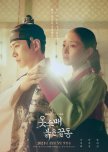
The oppressive cost of power and order
I’ve just binge-watched this show. I hadn’t intended to but I was caught up with it because I was fascinated by the focus on the limitations and demands of order. If you’ve come in hopes of a standard romance, then you may well be disappointed, because love is shown to be just another victim of the rapaciousness of order, flapping pathetically like a bird in a gilded cage. But hopefully the deeper and more thoughtful themes in this show will captivate your interest.The drama explores the necessities required by order to maintain itself. To sustain a cohesive society with all its factions it is necessary for the powerful to be bound. The necessity to prevent rebellion/chaos and maintain order is alive in every rule. Loyalty is the only currency. Loyalty is to the one you serve and once that person is dead, you are unceremoniously ejected from the seat of power as your loyalties are no longer fixed and therefore questionable. Everyone, including the king is bound by those rules and must follow them or pay a heavy, and often fatal, price. Within the confines of the palace freedom is the illusion that everyone craves.
The oppressive cost of power is explored through a number of characters, who deal with the shackles in different ways. Some scheme to undermine it, some scheme to try to create safety for their own group, some feign ignorance and keep their heads down, some scheme to gain unassailable power. The FL resists it, fighting to keep a tenuous hold on the fragment of autonomy that she has carved out for herself. Universally, everyone is forced to hide their true feelings and conform to what is required of their role. The suffocation of those endless formal bows and the life spent simply third in line, half bent over, in the small procession that follows the king everywhere he goes. But in the end there is only one way to survive, as one of the characters says, (paraphrased) “if you can’t beat them, join them and go with the flow”.
The role of women is particularly explored here and it is no surprise that the uniqueness of this drama is the result of a female perspective, both in terms of the writer and the director. If you liked the film “The Piano” (Jane Campion) then you will see echoes here of how sex and genuine love are used to “buy” relief from loneliness and the burden of responsibility, and the options available to women in response to those demands.
In terms of the acting, both leads were very convincing in their parts and were surrounded by a good supporting cast. The script was not outstanding in my opinion, but more than adequate to the task. It occasionally slipped into mawkishness, but also surprised in other places. In a drama that relied on the believability of the relationships, the plot lost me sometimes, particularly with regard to the letter and the kidnappings scenarios. However, I can credit that they were used to illustrate broader themes.
Overall this was a surprisingly good drama that far exceeded my expectations and gave me a lot to think about. Recommended!
What my rating means: 8+ A great drama with interesting content and good writing, direction, acting, OST, cinematography. But didn’t quite have the requisite sparkle to bump it into my all-time fave list. Worth watching.
Questa recensione ti è stata utile?
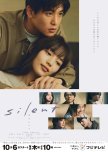
Amateurish production heavy on social education
It seems as though someone wanted to make a “socially aware” drama about the impact of hearing loss and impairment, but really didn’t have the skills in the field of story-telling and drama to pull it off successfully. I felt like I was being educated rather than entertained. Don’t get me wrong, I’m all for education and did find aspects of this production interesting and informative; but if education is going to come in the form of a drama, I’m looking for good dramatic structure, realistic dialogue and credible character interactions to carry it, such that it is woven in seamlessly. Otherwise, it would be better to watch a serious reality show/documentary about the lives of hearing impaired people.What’s positive? It was about ordinary people and presented in an ordinary way, so it was not offensive. I didn’t actively dislike it, but I’m having difficulty in finding stuff that I can be enthusiastic about. Okay, there were some touching moments that weren’t too sentimental…
Overall the drama had an amateurish feel to it; particularly regarding the script, editing and sound.
The script was particularly unconvincing. The characters constantly have unrealistic conversations about issues. It’s much better to show characters in their normality and let the viewer put two and two together for themselves rather than preaching and patronising. But that requires a level of writing expertise which was lacking here and I’m wondering if this was a first attempt by the writer. The scarcity of ordinary interactions meant that there was very little opportunity for the actors to create rounded characters.
The plot clunked it’s way through a variety of relationship scenarios that were not properly explored or given time and depth to be credible. The structure of the plot was also clumsy, with heavy use of long stretches of backstory that interrupted the flow.
I was not particularly impressed by the two male leads, Meguro Ren and Suzuka Ouji. I think this was partly the directing, which insisted on overcooking the melo with the ironic result that they seemed shallow and one-dimensional. Whereas Kazama Shunsuke, Kaho and especially Shinohara Ryoko were more impressive and believable in their roles. It was not helped by the fact that there were not enough conversations that were free from some aspect of hearing impairment education, so the relationships did not feel natural or credible.
The editing was really bad overall and especially the music, which was sometimes randomly and abruptly cut off so that you felt like you were aurally falling off the edge of a cliff. This could have been a really effective tactic to highlight point of view changes between hearing and non-hearing characters. And occasionally I think they did that. But not consistently or cleanly enough for me to be sure what their intention was. I was just aware of sudden abrupt changes in sound levels and focus that did not seem to be synced with character interactions.
Overall, meh.
What my rating means: 5+ Meh! Don't bother, it's full of platitudes and clichés with boring characters and plots.
Questa recensione ti è stata utile?
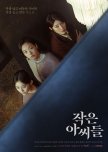
More Alice in Wonderland than Little Women
Loosely based on Little Women is the sort of loose that happens when the elastic in your trackies gives way and they drop to your ankles in a wrinkled heap. Yes they are still trackies, but not obviously so. I spent the first episode distracted by trying to unsuccessfully work out how this drama maps to the book. But I was looking in the wrong place, because, although there are parallels to be found, the map is really in the theme: the significance of money.This is fundamentally a story about money and its sidekick—power (the perennial obsessions of K-dramas, well maybe most dramas actually…). How and why it shapes lives, morals, choices and character. How poverty shapes your mentality and expectations. What you are willing to let it buy and what that does to your integrity. What risks you are willing to take to acquire and keep it. Under what conditions you will let it go. The price that your decisions exact from both you and those around you.
It puts the protectors, helpers, underminers and benefactors of the wealthy centre stage and examines their motives and desires. This is a rare perspective and I can only remember it being the centre of a drama in one other totally brilliant case, “Secret Love Affair” (if you are interested in this aspect, watch SLA, it will not disappoint, although it’s not a thriller).
As you can guess by now, it is not the plot that makes this drama special, (more about that later) although you can simply watch it as a thriller. It’s the examination and unfolding of motive behind the fight for freedom and opportunity in a world that values money over the individual. A society that insists we fight for limited resources to fulfil not only our dreams but our basic survival as well.
It’s almost impossible for us to imagine a society not based on money. But money itself is not of course concretely real, it is simply a universally accepted system of sharing resources that becomes meaningless if we lose trust in it. It is the illusion around which our reality and dreams are built. And if you are going to be fanciful, you could watch this drama as a commentary on the system’s strengths and weaknesses and the approach people take to best work it. Given that it is compulsory to engage in this system, the question as to what is morally acceptable and what is personally justified is core to the unfolding of the narrative.
Having said all that, there are problems in my opinion with how the drama is written and presented. There’s a vibe of the sisters being ordinary people (a reference to Little Women perhaps) who are unwittingly and sometimes unwillingly mixed up in something big.
However, through most of the drama, the sisters don’t display enough realistic, long-term emotional reactions to support their ordinariness in the extraordinary and violent situations that surround them. In a normal thriller we suspend disbelief because the whole thing is not related to any recognisable reality in the first place. Here, particularly in the middle section, I am being made aware of the gap between quasi normality and the world of the story with the result that I am also very aware of suspending my disbelief. And at times I found the approach is not subtle enough to make it work.
Because the women are presented as relative amateurs, there are moments that stretched my credulity to breaking point. For instance, without any preparation and seemingly without backup, they are willing to confront people they think are probably murderers. There are scenes where professionals who would never disclose information to anyone let alone the naive woman in front of them, disclose it. Etc, etc.
There’s an odd mix of the ordinary, the extraordinary and the completely surreal. The more surreal it gets the less the ordinary women at the heart of it are credible. It turns into conspiracy theory central with hallucinogens thrown in for good measure. Whether this was intended as a reflection of the madness that money creates in people is debatable.
The plot gets increasingly bizarre and takes off in strange directions and at times loses impetus. This has a fragmenting effect which leaks tension and can be frustrating. But at other times the sense of confusion and powerlessness is very effective in putting you into the shoes of the protagonists.
Overall, this is an ambitious drama and when it works it really works, and when it doesn’t, it really doesn’t. I’m someone who is prepared to put up with stuff not always working well if an attempt is being made to experiment with something new and different. I think this drama tries to do that, so I was happy to give it the benefit of the doubt, but even my goodwill was tested beyond its limits by the end.
What my rating means: 7+ A watchable drama, but nothing exceptional. Good enough to qualify for the race, but finished with the pack. The sort of thing that promises more than it delivers.
Questa recensione ti è stata utile?
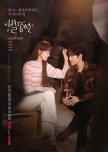
Have a bucket handy
I don’t know how much cutesiness you can take before being in urgent need of a bucket. I’m not good with it, so be warned, there’s one couple whose nausea rating rockets past stratospheric and had me retching for the FF button. Talking of couples, the word incestuous, seems almost ready to spring from my lips. It got so bad that even the celeb posters in the lobby were making out. If it could move it was paired up with something that only needed to show signs of breathing. Compatibility was an irrelevant afterthought if it was there at all. But hey, I’m not a sourpuss, and if it’s a bit of fluffy romance you’re after, then this is definitely your drama!Actually, for once, the leads were the best couple (Lee Sung Kyun and Kim Young Dae) and I really liked both their performances.Not the hottest pairing ever, but they had likeable characters and played them well. Second up in the credibility stakes was Park So Jin and Lee Jung Shin. After that it goes downhill pretty fast…
Unlike most dramas, which start and end well but flag in the middle, this had a great mid-section a passable beginning and a totally forgettable end. Unless you’re an aficionado of PP you can skip episode 15 altogether and not miss anything at all.
What my rating means: 7+ A watchable drama, but nothing exceptional. Good enough to qualify for the race, but finished with the pack. The sort of thing that promises more than it delivers.
Questa recensione ti è stata utile?

Beautifully crafted gem
This is a tasty little series; unpretentious, straightforward and beautifully put together. It is 8 stand-alone episodes, each with a specific theme and a different male/female couple. The twenty-five minute stories involve spending a night together (not necessarily for sex) and eating breakfast afterwards. The series explores the hinterland of closeness, both physical and emotional. The borderline of intimacy and emotional vulnerability.A great deal of thought has been put into how to frame each story. Every episode has a definitive colour and food menu and they are used symbolically to represent the different flavours of interaction and relationship. Emotions and emotional space is also symbolically represented by cutting images into the narrative. A character may be seen alone in an open field, or sinking through water. At first this struck me as a bit self conscious, but as the series progressed, I got into the imagery more and appreciated the careful crafting that had gone into the production values.
It’s the type of series that packs a lot in and you could definitely watch it again and get more out of it. The dynamics of the couples were so varied and covered a whole range of reasons why we seek closeness with others - consolation, kindness, loneliness, sanctuary, hope and failure - all of these were featured and more.
The standard of acting did vary, but was very good in the main. Only episode six stuck out as being below par.
Recommended.
What my rating means: 8+ A great drama with interesting content and good writing, direction, acting, OST, cinematography. But didn’t quite have the requisite sparkle to bump it into my all-time fave list. Worth watching.
Questa recensione ti è stata utile?


 3
3 2
2
















